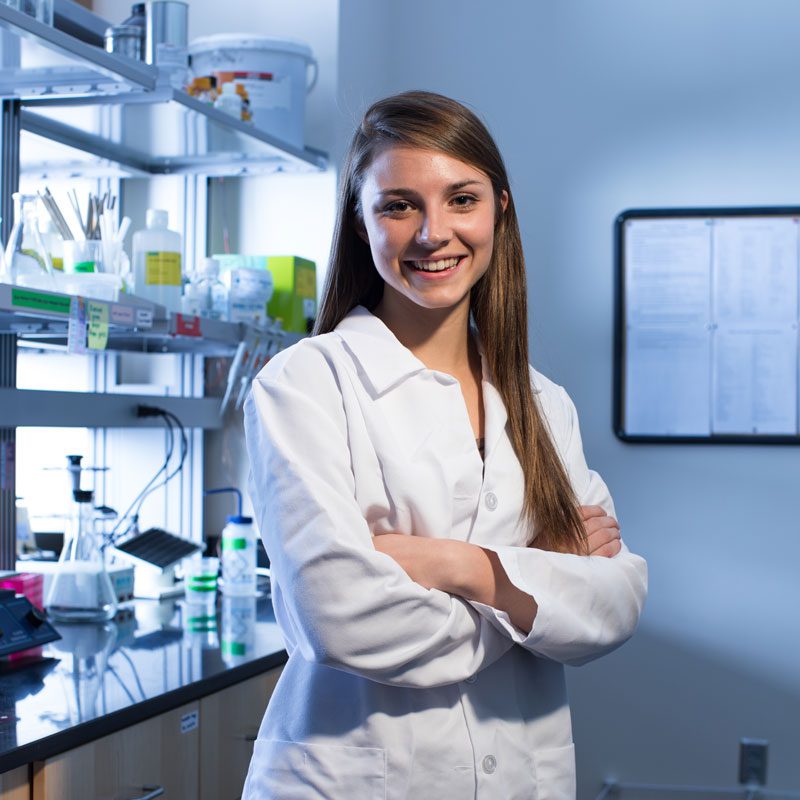
Maddie Ritter
- Major: Neuroscience
- Hometown: Greenville, South Carolina
Madison Ritter spent the summer before her senior year in a pediatric oncology lab in Memphis, participating in groundbreaking research. It was a dream come true – because the right people at Furman knew her dream.
From the moment she stepped on the Furman campus, Ritter ’17 pursued connections. She didn’t stop at a simple check-in with an academic adviser. She was in one office getting her entire four-year plan mapped out. She was in another to pursue internships and shadowing experiences that would speed her on the road to medical school and a career in pediatric oncology.
“I fell into a network of people” is how Ritter describes it. But Susan Ybarra ’92, associate director of the Institute for the Advancement of Community Health, said it required much more effort than that.
“Any time that anyone told her, ‘Talk to this person,’ she did that,” Ybarra said.
Because of that, when a chance for one summer internship slipped through Ritter’s fingers, her connections kicked in to create another opportunity, custom-designed for her skills and interests.
“We knew the caliber of student she was,” Ybarra said. “I had no problem going out on a limb for her.”
Ybarra reached out to Dr. Matt Wilson ’86, professor of ophthalmology at the University of Tennessee and the St. Jude Children’s Research Hospital Chair in Pediatric Ophthalmology. By the end of the same day, the framework of a plan was in place for Ritter to work in a UT lab and shadow Wilson at St. Jude through the summer.
“That would not have happened if I didn’t know her,” Ybarra said.
Wilson had visited Furman recently and met, among others, Ybarra and Victoria Turgeon, director of Furman’s neuroscience major. As they talked, he extended a general offer of assistance in the future. None of them realized how soon there would be a chance to take the offer from theoretical to practical.
“This wouldn’t have occurred unless the connections were made between the university and alumni,” Wilson said.
“All of us came together to make this opportunity,” said Ritter, who is working now as a post-baccalaureate fellow and coordinator for Furman’s Institute for the Advancement of Community Health, with medical school on the horizon.
The possibility of individual attention is part of what drew her to Furman in the first place. And her experience demonstrated that when students reach out, faculty, staff and alumni reach back.
“They actually take the time to get to know you and your interests,” she said. “They’re fighting for you, because they know you.”
0